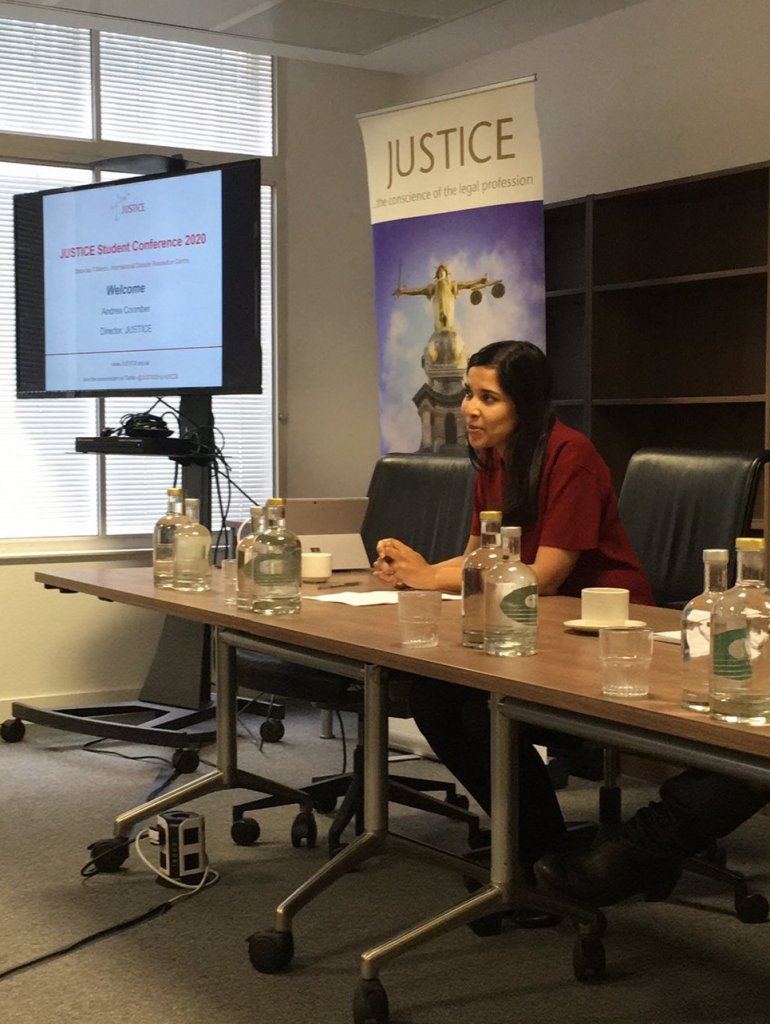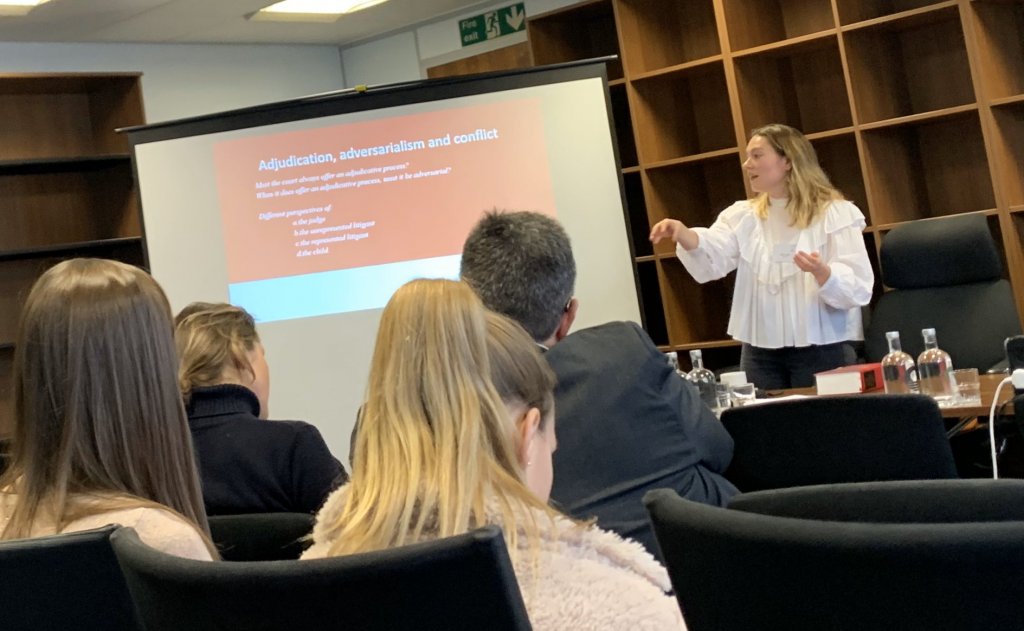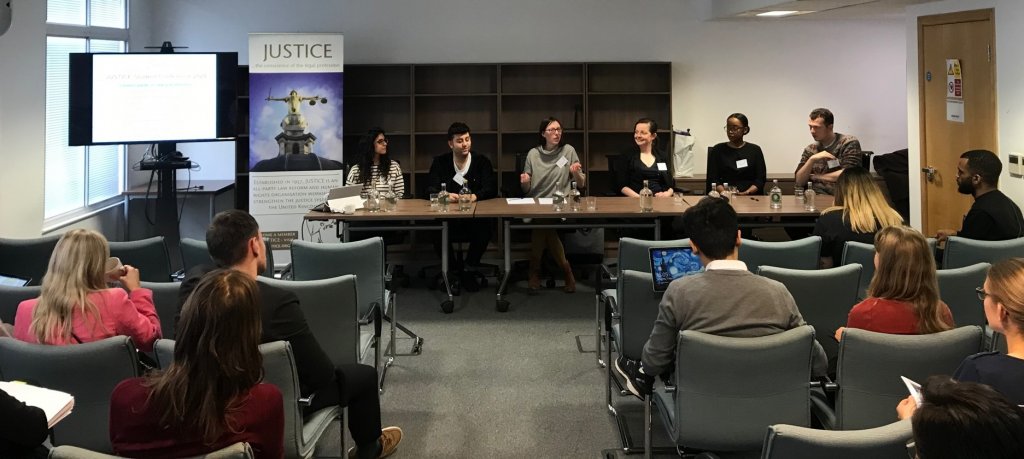On Saturday 7 March, our annual JUSTICE Student Conference took place at the International Dispute Resolution Centre in London. After a fascinating keynote speech, we held break-out sessions looking at the benefits system, the family justice system, and the Magistrates’ Courts.

The conference opened with a keynote address delivered by Tessa Khan, an international human rights and climate change lawyer and Co-Director of the Climate Litigation Network. Tessa expressed concern for the ethical deficit among corporate lawyers enabling fossil fuel companies to continue their work, arguing that Lawyers have a choice whether to support corporate clients, banks and companies. Tessa also advised the student delegates that all lawyers have had masses of rejections, but that these create paths to other opportunities. She encouraged them to find mentors; identify new routes and areas where the law can achieve change.
JUSTICE’s Civil Lawyer, Alex Walters, delivered an engaging workshop on Reforming the benefits decision-making system, which garnered meaningful input from the students. Alex highlighted the significant problems around first-instance decision-making and the appeals system, noting that in excess of 60% of certain types of benefits decisions are overturned on appeal. He also explored the expanding use of digital processes for certain types of benefits appeals as a possible source of exclusion. Alex urged the students to think in particular about the ‘polluter pays’ principle and the practice of ‘triage’, which is a form of early judicial intervention. The students suggested creative ways to improve Work Capability Assessments and promote greater accuracy and accessibility in the benefits decision-making system.

The Reviewing Family Justice breakout session was delivered by JUSTICE’s Ellen Lefley. She began the session by focusing on Sir James Munby’s second category of family law, ‘Fracture’, looking at the different roles the Family Court has in assisting resolve fractures in families. The session then examined the idea of adversarialism in the Family Court, comparing it with the more traditional adversary style seen in civil litigation cases. The importance of third-party evidence e.g. Cafcass and Social Services was explored, as well as the benefits of out of court resolution options when ensuring the best interests of the child.
JUSTICE’s Tariq Desai led an insightful session regarding the Magistrate’s Courts and Liberty. In conversation with the group, Tariq discussed the current state of the Magistrates’ Court and whether it was fit for purpose. Between Tariq’s expertise and some astute input from the group, various points were raised and debated regarding the Magistrate system, in relation to remand decisions. Topics discussed included the selection system for Magistrates, the racial and cultural diversity of Magistrates compared with that of the general population, whether there was greater advantage in being judged on the facts by a layperson or a legally trained person, and whether an adversarial or inquisitorial system works best. The talk was lively and sharp, producing some fascinating ideas.

The conference concluded with a careers panel sharing invaluable advice about their various routes into legal practice, the different challenges they have faced along the way, and how to navigate their legal journey going forward. Our fantastic speakers were Zoë Chapman, Ollie Persey, Shameem Ahmad, Allan Hennessy and Clara Sibanda.
There is more coverage of the conference on Twitter under #JSC20
